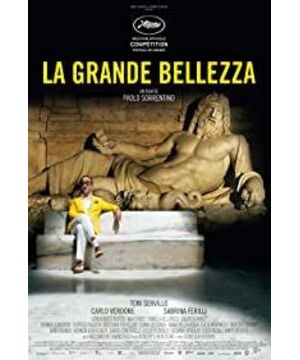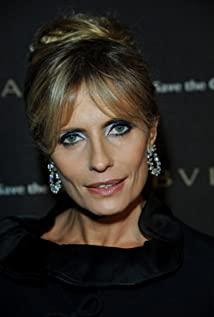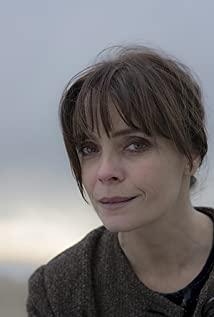When I just won the Oscar for Best Foreign Language Film last year, I came to watch it, but I didn't see anything other than "beautiful". I liked it, but I liked it, and I couldn't translate it into words and tell others. A year later, after watching "Youth and Exuberance", I remembered "A City of Absolute Beauty", so I re-read it again, this time I dare not say it all and understand it (this kind of thing, I don't dare to say it after reading it ten times a hundred times) ), at least in addition to beauty, I saw something more, such as ugliness. Therefore, some films still have to be tasted repeatedly.
As for beauty, beauty is Rome. Empty streets, sculptures in mazes, birds resting, giraffes in squares. . . These pictures are in a beautiful state under Sorrentino's unique Italian composition and lens movement. Those who are familiar with Italian and French films may unconsciously think of Fellini and the New Wave, "Eight and a Half" and "Last Year at Marienbad" when watching them, but after watching the movie What doesn't go is the back and eyes of the protagonist Jep.
About ugly, ugly is life. Every night I sing songs, but my heart is still lonely; I am accompanied by friends, just to warm up in a group, over time, the warmth subsides, and all that remains is indifference and meanness.
At a certain stage in life, it is inevitable to lose all the time, lose friends, lose feelings, and even lose the first love that has been lost again. This is the life of the protagonist of the film, Jep. A well-known journalist, who has written a successful book, entered and exited the upper class, and earned both fame and fortune, is just such a person. After his 65th birthday, his world-weariness reached its peak. The most direct manifestation of world-weariness in Jep is probably indifference, indifference to others, and indifference to things. The death of an acquaintance and the departure of friends seem to have nothing to do with him; he says "not every man who approaches you wants to have sex with you", and finally gets the girl into bed. Such a role is not pleasing.
The story divides Rome into two, the noisy Rome and the quiet Rome. The two Romes correspond to two kinds of life. One is noisy and the other is quiet, interspersed with narratives. The noisy is the life that Jep experiences, the quiet is the life that Jep observes, and the noisy. Unchanged, static has its own merits. This dynamic and interspersed narrative starts with the tourists and choir at the beginning, and continues until the end of the film. It circulates in this kind of life every day, and even the people watching it are tired, not to mention the people in the film.
The best part of the film is the movement of the camera. There are very few still shots, and most of them are moving shots. It can be understood as seeing everything from the perspective of the protagonist Jep. , After a group portrait of a red man and a green woman, cut to Jep's face full of folds and smirk to the point of distortion. Most of the solo shows are Jep's back first, with an over-the-shoulder shot, showing Jep's calm face, and then by this The calm transition to the beautiful Rome, at this time, what the audience sees is what Jep sees: nuns working in the sun, men doing morning exercises, quiet streets, fountains in the square. The tranquility after the hustle and bustle leaves the most beautiful Rome and the emptiest heart. An over-engaged audience is easily infected by this emptiness.
View more about The Great Beauty reviews











